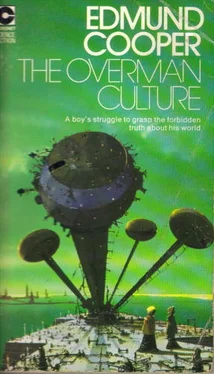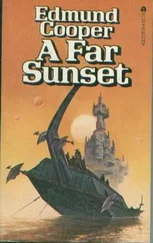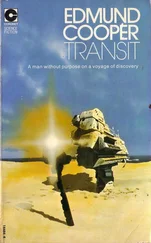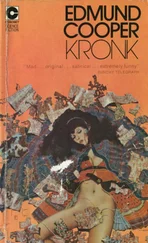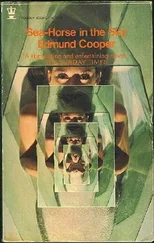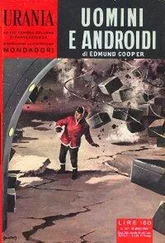Edmund Cooper - The Overman Culture
Здесь есть возможность читать онлайн «Edmund Cooper - The Overman Culture» весь текст электронной книги совершенно бесплатно (целиком полную версию без сокращений). В некоторых случаях можно слушать аудио, скачать через торрент в формате fb2 и присутствует краткое содержание. Город: London, Год выпуска: 1977, ISBN: 1977, Издательство: Coronet Books, Жанр: Фантастика и фэнтези, на английском языке. Описание произведения, (предисловие) а так же отзывы посетителей доступны на портале библиотеки ЛибКат.
- Название:The Overman Culture
- Автор:
- Издательство:Coronet Books
- Жанр:
- Год:1977
- Город:London
- ISBN:978-034017860
- Рейтинг книги:5 / 5. Голосов: 1
-
Избранное:Добавить в избранное
- Отзывы:
-
Ваша оценка:
- 100
- 1
- 2
- 3
- 4
- 5
The Overman Culture: краткое содержание, описание и аннотация
Предлагаем к чтению аннотацию, описание, краткое содержание или предисловие (зависит от того, что написал сам автор книги «The Overman Culture»). Если вы не нашли необходимую информацию о книге — напишите в комментариях, мы постараемся отыскать её.
The Overman Culture — читать онлайн бесплатно полную книгу (весь текст) целиком
Ниже представлен текст книги, разбитый по страницам. Система сохранения места последней прочитанной страницы, позволяет с удобством читать онлайн бесплатно книгу «The Overman Culture», без необходимости каждый раз заново искать на чём Вы остановились. Поставьте закладку, и сможете в любой момент перейти на страницу, на которой закончили чтение.
Интервал:
Закладка:
“Sir Winston,” said the Queen angrily, “I will hear no more of this—this abuse. Let us leave the madman, and I recommend all honest citizens to do likewise.”
“Scoundrel,” shouted Sir Winston, “you will live to regret this. I shall advise the Queen to recall the Brigade of Guards.”
“Advise her also,” said Michael, “to stay out of my way. Advise all drybones to stay out of our way. We have had enough.”
Sir Winston helped Queen Victoria into her hovercar. Then he got in after her. The hovercar sped smoothly away.
“Michael Faraday, I disown you!” That was Father’s voice again. “The Queen is right, as always. All sensible people will leave this place. Only traitors will remain.”
“Go and choke on your own clichés,” said Michael evenly. “Your task is over. If it was to make me grow up to accept this nonsensical world, you failed badly.”
In twos and threes, the drybones began to drift away, some murmuring, some making threatening gestures that now seemed oddly comical. Michael wondered with amazement now why he had been so dreadfully afraid. Then suddenly he understood. It was a joke—a rich, rich joke. It was not the fragiles but the machines who had been on a no-win basis. Their experiment—or whatever it was—contained its own defeat. If the machines restrained the fragiles, it failed. If the machines did not restrain the fragiles, it failed. It could only ever have succeeded if the fragiles had remained passive, uncurious, unadventurous.
Michael looked at those who remained, and counted them. Forty-two fragiles—and himself.
They looked at him, some amazed, some bewildered, some smiling, some proud.
He felt a great surge of kinship. These, he thought, are my brothers, my sisters. I belong to them, and they to me. From now on, the fantasy, the pretense, is over. From now on, what we do, we will do together, and we will do it openly. We will never submit to the drybones again.
He climbed down from the wall and held Emily’s hand. The other fragiles came closer. Charles Darwin Mary Kingsley, Dorothy Wordsworth, Joseph Lister, James Watt, Charles Babbage, Elizabeth Barrett, John Dalton…
“Now,” said Michael, “we are the only real people in this place we have been taught to call London. At last we can all speak freely and openly to each other. I think there is a great deal to be said and a great deal to be decided. One thing is certain: There can be no going back. Whatever happens, life can never be the same for us again.”
30
The fragiles talked to each other. At last someone had had the courage to confront the drybones with secret and forbidden thoughts and—most important of all—to defy the drybones, to challenge their aims and actions, their authority. At last the psychological barriers were down, and the fragiles felt free to talk to each other as they had never talked before.
For a time, there was babbling chaos as people crowded around Michael, asking questions, contributing their own items of information. For a time, they could not stop speaking, chattering, even laughing. Until now they had not realized the depths of their inhibitions, the extent of the loneliness and mistrust and insecurity to which they had been driven by the drybones.
Amid the torrent of words, Michael discovered that others had begun a program of exploration. James Watt had already discovered that the Thames was not a river. Charles Darwin had found that there were no roads leading out of the city.
At length, when the first dizzy exhilaration of freedom had subsided a little, Ernest was able to call the fragiles to order so that Michael could now carry out his original intention of making public all that had been discovered so far.
Few of the fragiles were greatly surprised to learn about the Thames or the roads; but they were all immensely excited to learn of the existence of the library and its contents. Those who had long ago joined in the laughter and ridicule when Michael and Ernest had persisted in their determination to read now bitterly regretted their own lack of confidence and interest, the subtle conditioning of the drybones.
Michael explained how he had discovered that the war was a farce, that in reality it had been an entirely different war, and that—according to the books—it was now part of history. He also told of the discovery that every fragile, or almost every fragile, had names that were the same as great writers, scientists, explorers. And he recounted the exploration of one of the underground passages leading from the library, the destruction of Aldous Huxley, the discovery of his body in the strange world that lay outside London. Finally, he explained how Horatio Nelson had died and how Jane Austen’s suicide had convinced him that there could no longer be any secrecy; there could no longer be any division among the fragiles.
“It comes finally to this,” said Michael, gazing at faces he was learning to see anew, at people he was learning to love and accept and respect, “we are the true human beings, the real ones…. There are very few of us—why, I do not know. But I am sure we will find out.” He extended his arms in a dramatic gesture. “All this—this elaborate stage scenery was, I am sure, constructed entirely for us. We, therefore, are the precious ones. They are expendable. They are only instruments designed for a purpose. And the purpose lies with us.”
“What shall we do now?” asked Mary Kingsley.
“Find out as much as we can as fast as we can,” answered Michael. “The great deception is over. The drybones know it is over. So we no longer have to explore by stealth. From now on, we do whatever we need to do openly. I suggest that we go to Apollo Twelve Square, to the London Library. Horatio found two underground passageways. So far, we have only been able to explore one. I suggest that we split ourselves into three groups: one to hold the library against any—any intrusion, and the other groups to explore both passageways…. Eventually—if we remain here long enough—we will set up reading lessons so that everyone can discover for himself what lies in the books.”
“How do we know the books were not manufactured by the drybones?” asked Joseph Lister. “Like they have manufactured everything else for us.”
“We don’t know,” said Michael. “You will have to judge for yourself. But it seems to me that the books in London Library contain thoughts and ideas and knowledge beyond anything ever experienced or hinted at by any drybone we know…. Those books smell of people—real people. I’m sure you will find—as I found—an awareness of truth, a desire to communicate,… Truth is what the drybones have always denied us. You will recognize it instantly when you see it. Like a hungry man recognizing food.”
“If we are going to the library,” said Ernest, “I think it would be unwise to lose any more time. The drybone mind is inscrutable. They obviously provided the books; and it might just occur to them that they could slow us down by taking the books away.”
Michael was suddenly anxious. That would be an obvious drybone retaliation. But perhaps too obvious. These days, the drybones were being more subtle than formerly. Nevertheless, the fragiles could not now afford to risk losing their precious store of books.
“Ernest is right. We must get to Apollo Twelve Square as fast as we can. I should have thought of that before.”
Emily squeezed his hand. “It is going to be all right. I have an odd feeling that the drybones are not going to obstruct us anymore.”
31
London Library looked desolate and deserted, just as it was when Michael had first seen it. The boards that had once been across the doorway lay where Horatio had dropped them when he had pried them away. The windows were as grimy as ever. The door was not locked.
Читать дальшеИнтервал:
Закладка:
Похожие книги на «The Overman Culture»
Представляем Вашему вниманию похожие книги на «The Overman Culture» списком для выбора. Мы отобрали схожую по названию и смыслу литературу в надежде предоставить читателям больше вариантов отыскать новые, интересные, ещё непрочитанные произведения.
Обсуждение, отзывы о книге «The Overman Culture» и просто собственные мнения читателей. Оставьте ваши комментарии, напишите, что Вы думаете о произведении, его смысле или главных героях. Укажите что конкретно понравилось, а что нет, и почему Вы так считаете.
